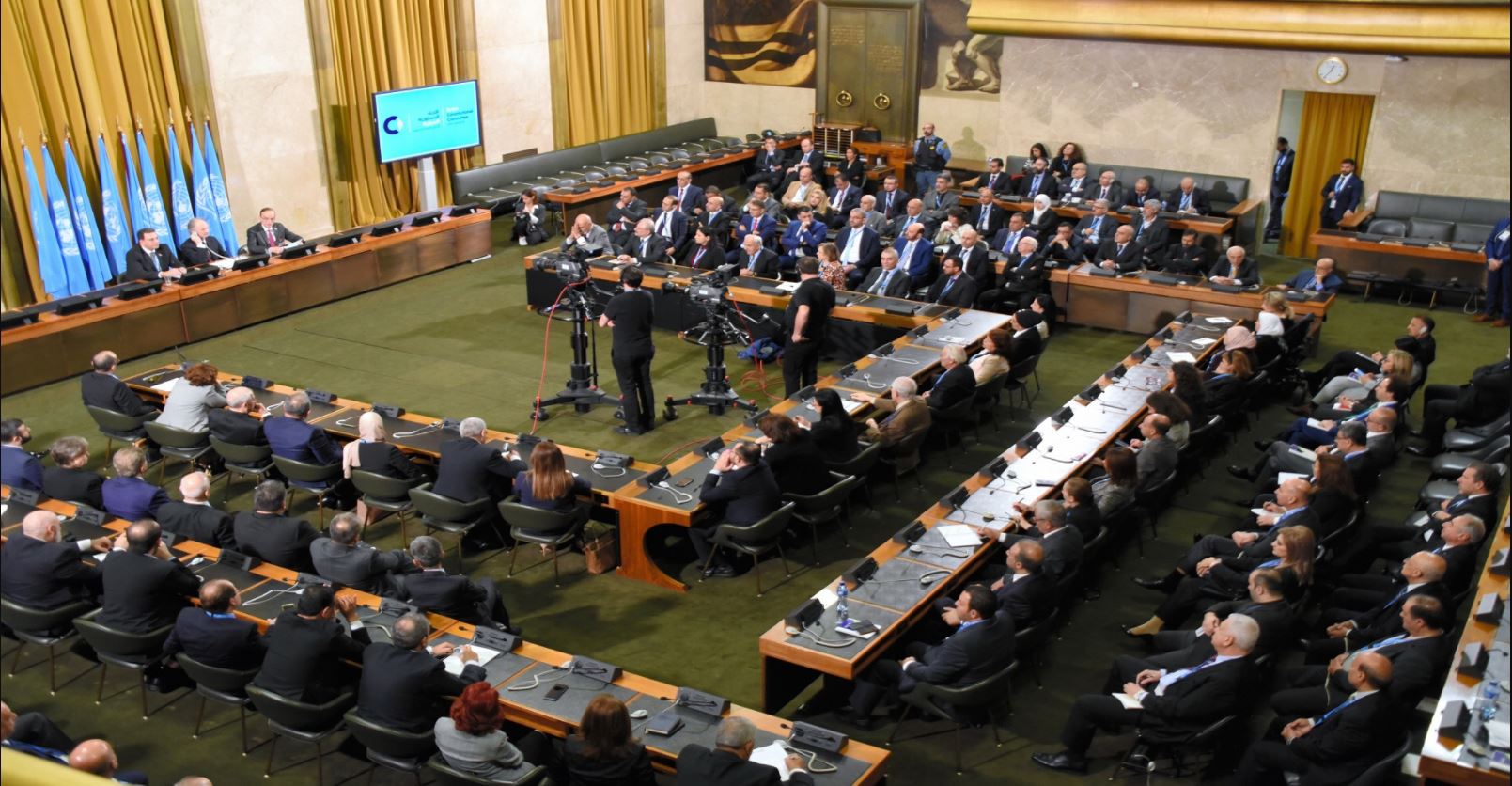Syria conferences serve international players’ interests: political analyst
QAMISHLI, Syria (North Press) – On Saturday, Syrian political analyst Nizar Ba’rini said that the Syrian Constitutional Committee has been a political “Astinalization” regarding its means and goals, as it “is a detour and pre-emptive movement against the Geneva path.”
The political analyst made his statement following the failure of the Constitutional Committee in reaching any progress regarding its work, in addition to the failure of the UN Envoy Geir Pedersen’s visit to Syria.
“The relation between both Geneva and Astana and the Constitutional Committee’s is a contradictory relation in contrast to the misinformation that some international and Syrian powers are trying to propagate,” Ba’rini said in an interview with North Press.
“Geneva’s steps regarding the political solution began after foiling the two Arabic projects 1 and 2; (Arab League peace plans for Syria 1 and 2) through a series of meetings during 2011 and draft decisions that they worked to release and promote,” he added.
Since 2012, they worked to complete them “politically and diplomatically through the six points of Kofi Annan, Geneva statement 1 to UN Resolution 2254 of 2015 and the related decisions that provide a Road Map for a peaceful power transmission.”
He pointed out that “both paths of Astana and Sochi, starting from 2016 with the participation and command of the guarantor powers (with the America’s green light), have been only apolitical framework to control the steps and rounds of the military conflict that their forces (Russia, Turkey, and Iran) have been running through their Syrian tools.”
The conflict is ongoing for the interests of the United States and Israel to divide Syria into areas of influence and shares, reaching a political agreement legitimize the new Syrian reality, according to the political analyst.
“Reaching a political outcome is fulfilled through legitimizing the current statue according to a political deal that guarantees war-parties’ interests and the areas of influence against the democratic change’s goals,” he added.
The policy of the current structure suits the existing military powers without any changes in the light of the absence of Syria’s current and strategic interests, according to the political analyst.

